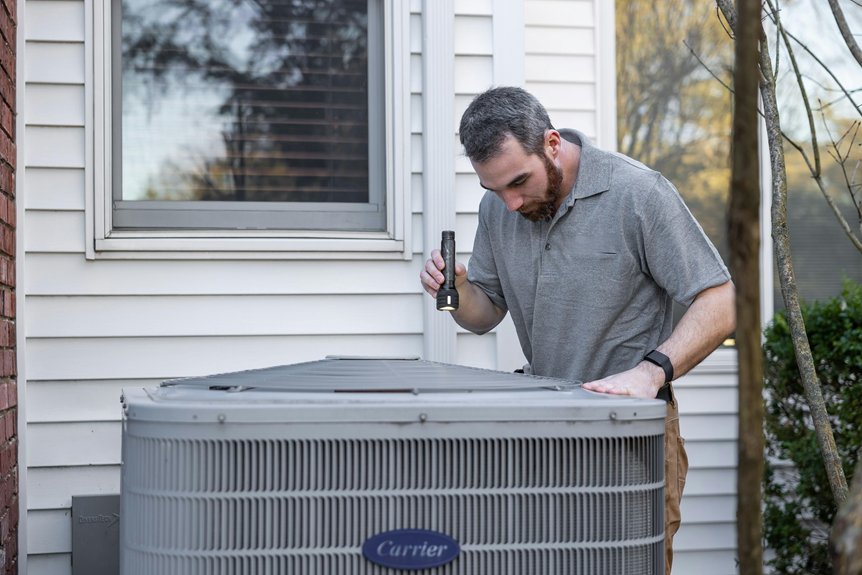HVAC technicians are responsible for the installation, maintenance, and repair of heating, ventilation, and air conditioning systems, ensuring optimal indoor comfort and air quality. They typically begin in entry-level positions and have the opportunity to progress into specialised roles or management positions within the industry.
Salaries for HVAC technicians can vary depending on geographical location, with urban areas often offering higher wages due to increased demand for skilled professionals. Essential skills for technicians include the ability to read blueprints, troubleshoot issues, and perform mechanical repairs. Many technicians bolster their qualifications with certifications such as EPA 608 or NATE, which can enhance their employability.
Continuing education is vital for HVAC technicians, allowing them to stay updated on the latest technologies and industry practices. This ongoing learning not only improves their expertise but also aids in advancing their career prospects within the HVAC sector.
For those interested in this rewarding field, exploring further can provide valuable insights into the various pathways and opportunities available in the industry.
Career Paths and Opportunities in HVAC
Career opportunities in HVAC (heating, ventilation, and air conditioning) provide a well-defined progression for individuals interested in this field. Many begin their journey with entry-level positions such as apprentices, helpers, or technicians, where they acquire practical experience in installation, maintenance, and repairs.
Trade schools offer essential training, which is complemented by on-the-job learning alongside experienced professionals. As technicians accumulate experience, they can transition into mid-level roles such as service managers or specialised technicians focusing on renewable energy or system design.
With further experience, professionals may advance to senior positions, including contractors, inspectors, or trainers. Additionally, there are related careers such as energy auditors, building automation specialists, and sales representatives that benefit greatly from HVAC expertise. The HVAC industry is projected to grow significantly by 2028, creating new opportunities for career advancement. These diverse pathways present numerous opportunities for growth, specialisation, and leadership within the industry, catering to a wide range of interests and skills.
With the increasing demand for skilled HVAC professionals, the industry continues to evolve, offering exciting prospects for those pursuing a rewarding career in this vital sector.
Understanding Salaries and Geographic Variations
Salaries for HVAC technicians can vary significantly based on location, industry, and experience. Higher-paying regions in the UK often reflect similar trends seen globally, with metropolitan areas offering more competitive wages. For instance, cities like London typically provide salaries that are above the national average, while other urban centres also tend to pay more due to demand and living costs.
The following table illustrates the typical salary ranges for HVAC technicians in various locations:
| Location | Typical Salary Range |
|---|---|
| London | Above national average |
| Birmingham | Competitive salaries |
| Manchester | Good earning potential |
| Edinburgh | Attractive pay |
| Cardiff | Solid remuneration |
Wages are generally higher in urban, high-cost areas because of demand for specialised skills and the expenses associated with living in such locations. This makes geographic location a critical factor in determining earnings for HVAC professionals. As the industry continues to grow, keeping an eye on regional salary trends can be beneficial for those considering a career in this field.
Skills, Certifications, and Continuing Education
Having the right skills, certifications, and ongoing education is essential for HVAC technicians to thrive and remain competitive in the industry. They must be proficient in installing, servicing, and troubleshooting HVAC-R systems, including ductless mini-splits and refrigeration units.
The ability to read blueprints and comprehend electrical systems is vital, alongside mechanical skills necessary for machinery repairs. Certifications like EPA Section 608, NATE, and specific manufacturer credentials are important for both legal and professional recognition within the UK.
Technicians should also participate in continuing education—attending courses, workshops, and online modules—to keep abreast of new technologies and safety standards. Ongoing education is linked to industry demand and job stability, ensuring technicians stay current with evolving industry standards and technologies. This dedication to ongoing learning not only enables technicians to expand their expertise but also facilitates the attainment of advanced certifications, enhancing their career prospects.
Conclusion
Pursuing a career as an HVAC technician offers a promising pathway with ample opportunities for advancement. With appropriate training, certifications, and continual education, individuals can enhance their earning potential and specialise in areas such as refrigeration or system design.
Salaries can differ based on location and experience, but the demand for skilled technicians in the UK remains robust. Overall, a career in HVAC equips individuals with practical skills, ensures steady employment, and presents opportunities for professional growth, all while contributing to vital infrastructure.
This field not only provides a stable career but also allows for personal development and the chance to make a significant impact within the community.

